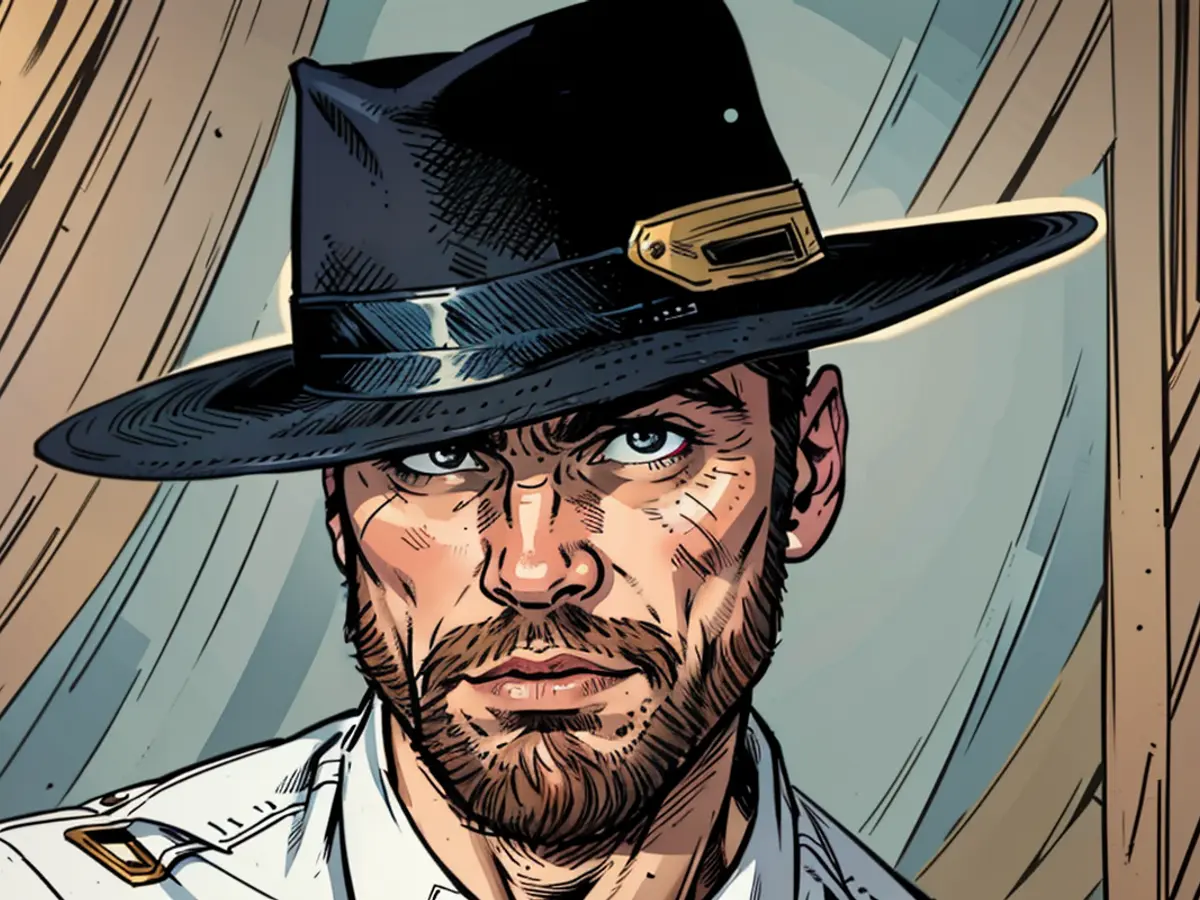Each sovereign pagan realm grapples with the natural cycles of existence, aging, and demise.
Elke Heidenreich's book on aging and being old has garnered significant attention. She credits its success to her optimistic stance: "Embrace old age, it's a beautiful aspect of life." ntv.de spoke with the literary critic about her mission, which is essentially: "Enough with the complaining!"
The popularity of her book appears to indicate that aging is a subject that resonates with many. What, in your opinion, has struck a chord?
Aging appears to be a topic that people are increasingly interested in. Why do you think that is?
As more and more individuals live well into their golden years, fear often accompanies the notion of aging. I aim to counter this fear with an optimistic outlook: "Don't fear aging, cherish it as a wonderful part of life." Death is inevitable, so instead of worrying about it, why not enjoy life to its fullest until the very last moment? This message of acceptance and enjoyment seems to be what makes the book so beloved.
There's a common saying: "The older you get, the faster time passes." Is this something you've experienced?
The older we get, the faster time appears to pass by. Remember the seemingly endless summer vacations of our youth? Now, a year goes by in a blink of an eye. I've noticed this myself, and it also has to do with the fact that our physical strength diminishes as we age, requiring us to accomplish more in less time. The ease that once was has faded away. The heart is not as steady, and sometimes even our bones ache. However, changes are not necessarily a bad thing. They begin in puberty and continue into menopause. But by embracing our older years, we also gain peace and composure.
In "Aging," you openly discuss both the good and the bad experiences of your life. Overall, you maintain a positive outlook. How did you develop this attitude?
I was asked by Hanser Berlin publishing house if I would write about aging for their series "Life reads," which features women discussing topics like love, sleep, travel, and living. I was inspired to write about living because I've had the opportunity to live in various places. The publisher insisted on aging, as I'm the oldest of the authors. After pondering for a while, the introduction to the book came to me. My life has had its ups and downs, filled with mistakes, difficult decisions, a challenging childhood, failures, and illnesses. Yet, it's also been filled with successes, bestsellers, financial stability, wonderful husbands, and supportive friends. Gathering all of these experiences allowed me to uncover my central theme.
What is that theme?
Every life story can be told from a negative or positive perspective. No one's life is perfect, but it's not entirely terrible either. I've faced crises and enjoyed the good times. Life is a blend of light and shadow. To find satisfaction, one must focus on the positive. This is the message I wanted to convey through the book. My goal is to encourage people: "Let's try to be a bit more positive and less complaint-oriented!"
You express admiration for Germany as a wonderful place to live. In essence, you're advocating against the current climate of complaining.
I am deeply grateful for the blessings I've received throughout my life. Compared to many parts of the world, Germany is a haven of peace and stability, with a strong democracy and a safety net for those who need it.
You mention that you only began contemplating your own mortality through "Aging." However, you also write about your thoughts on death as a 13-year-old when your grandfather passed away. How do these two ideas mesh together?
I've always been aware of death, yet I never dwelled on it. My grandfather's death marked the first time I truly contemplated it. Though I never saw it as a morbid subject, I realized that death was a natural part of life. I've never allowed it to consume me, but it was through "Aging" that I began to explore my mortality more deeply.
Losing loved ones, friends, and even a pet is a common experience. Some even lose children. I've gone through that too. But, I never thought of death in terms of myself. I was present at my grandfather's bedside as his breathing grew labored, and I asked myself: Where does Grandpa go when he dies? Will I have to die someday, too? Yes, eventually. This is when I started to consider death more thoughtfully, but I chose to push the idea aside, as is often the case when one is young. Otherwise, how could we go on living? But ever since then, I was mindful: Time will eventually run out, so it's important to make the most of it. And I have.
Did you ever consider aging before writing the book?
Yes, I did. I have regular medical checkups, have prepared financially for old age, and even drafted a will. However, it wasn't until I began writing the book that I started to truly explore the topic of aging from my personal perspective. And it was incredibly enlightening and enjoyable. I found myself thinking: Perhaps this could help some people embrace their own aging and stop announcing each year: "This will be my last Christmas."
Your book is also linked to the idea of not hiding in old age.
Yes, old age doesn't necessarily equate to graying hair and exhaustion. Our fighting spirit, intellectual abilities, and desire for love and camaraderie remain intact. So, don't play the part of a timid old mouse, but instead, go out and embrace life!
Loneliness and poverty are common struggles in old age. What are your thoughts on these issues?
Loneliness and poverty are indeed significant challenges for many elderly individuals. It's crucial that society addresses these concerns and provides the necessary support to help those in need.
The three most unpleasant aspects of aging are: Being financially strapped. Feeling isolated. Being unwell. However, you can ready yourself. To the individual I dedicated "Aging," who passed away at 105, possessed companionship and relished life until their final breath. Not everything is under our control. But fundamentally, it ultimately boils down to an individual's choice how their later years transpire, whether they've fostered relationships and saved funds.
The criticism levied against your perspective is that it's written from a privileged standpoint.
How am I privileged? As a working-class adolescent, I did not inherit anything. I merely chronicled the life I lived.
You discuss the elderly and those well into their senior years in your book: "Society assigns us the role we are to play." Have you experienced this yourself?
Never. Because I'm not that. If one behaves timidly, fearfully, and aged, then that's the role one appears to be playing. When I autograph books and inquire about whom I should dedicate the message to, I often hear elderly women say: "Oh, just for me." When I hear that, I ponder, what does "just" imply? Is anyone "just" in this world?
You quote numerous artists, including the poet Jean Paul with the lines: "As soon as we start living, fate presses the arrow of death out of eternity - it flies as long as we breathe, and when it arrives, we cease." Can you hear the arrow's flight?
Indeed, I can. I occasionally find myself contemplating, could this be my last summer, my last Christmas? But I swiftly push those thoughts aside. They come at night. During the day, I find myself too engrossed in my activities to ponder such ideas. I am not fearful of death or dying. My 80 years already represent a remarkable gift.
In "Aging," you clarify that you would reject a life-extending elixir. Do you advocate this stance because you believe such an elixir is unlikely to emerge in the near future? Or do you mean: Eventually, enough is enough, the individual must depart from this world?
The latter. Each has their designated time. Once mine has come to an end, I must depart. I also wouldn't desire any life-extending treatments if I were severely ill. I wouldn't even undergo cosmetic procedures to appear younger. I wish to maintain my authentic self till the very end of my days.
Would you also create a book about dying?
I'm uncertain. We'll see.
I am incapable, I cannot fathom it. Death is not an experience within life, says Ludwig Wittgenstein. He is correct. After all, we do not experience it.
Anything concerning death then?
I have written about aging. That is sufficient on this topic for now.
Thomas Schmoll conversed with Elke Heidenreich
In response to the common saying that "The older you get, the faster time passes," Elke Heidenreich acknowledges that she has experienced this phenomenon in her own life. To counter the apprehension often associated with aging, Heidenreich emphasizes the importance of embracing the later stages of life as a beautiful aspect of existence.
Additionally, Heidenreich highlights her mission to counteract the climate of complaining in society, advocating for a more positive and optimistic outlook on aging. Her book on aging has resonated with many, as it encourages individuals to focus on the positive and cherish every moment of life, no matter their age.








